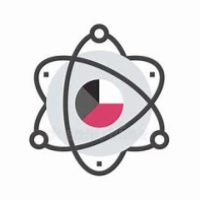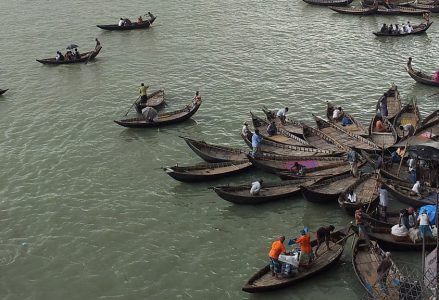As I sit on the bus, commuting to work, my phone is always close at hand. This morning, as so many other mornings, I’m using it to listen to the radio. The reporter takes me to Dhaka and a woman tells me from the other side of the world about a new invention that analyses the tap water quality in real-time, reducing the risk of people becoming sick. And my mind starts to wander.
Despite always having my phone close at hand, I must admit that I’m somewhat catious about sharing my information online. Not that I’m a technology sceptic. I have both Facebook, Instagram and LinkedIn. But I’m one of those who sneak peak on others without being very active and sharing much information myself. My kids think I’m boring for never posting images on them and my profile picture is usually a flower or a distant landscape. I am scared of how much power big data companies have over my life and dislike adverts shaped after my interests. But when listening to the report from Dhaka, I embrace the technology using big data and salute the initiative. What’s the difference?
People and things
Of course, the example with the water in Dhaka doesn’t involve people but rather micro organisms which, thus far, hasn’t raised any concerns with being surveilled. It’s also being done for a good cause, trying to help people get access to relatively clean tap water (it still needs to be boiled though since it no longer can be taken from underground aquifers but is fetched from the polluted rivers). But what happens if taking another example, which is still for a good cause but this time involves people? The Center for Policing Equity is maintaining a database for police behaviour, aiming at alleviating “the damage that racist policing causes to Black, Native, and other traditionally marginalized communities”. If not before, the death of George Floyd, made it apparent that this is an issue that needs to be adressed. But could the surveilled police officers feel uncomfortable knowing that their actions are recorded and used by a data base? And if so, do they have the right to feel so, considering the power the have in their professional role?
A Blog Contribution from a Privileged Author
Being a white middle-class woman living and studying in the global North, one could very reasonably question my role as an author on a blog discussing development issues, particularly if development is regarded as societal change taking place in a so called developing country or the global South. Nonetheless, I will in this blog, along with my co-students, try to analyse the use of Big Data and the ethical implications that might comes with it. My angle will be to find and analyse positive attempts of using big data for development – and their results.
Wish me luck!
Learn more:
https://sverigesradio.se/artikel/med-ny-teknik-forsoker-bangladesh-forbattra-vattenkvaliten
https://policingequity.org/what-we-do/justice-navigator


